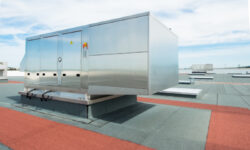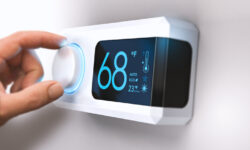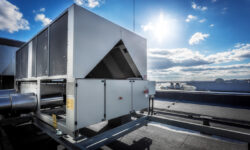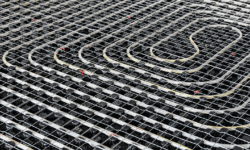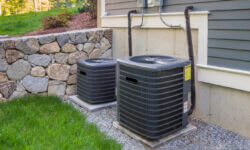When deciding on air zone HVAC systems, the Variable Volume & Temperature (VVT) is an HVAC control system with many advantages. The VVT system overview is a cost effective way for building occupants to maintain & control temperature. Read on to learn how a VVT HVAC system is traditionally constructed and the benefits it can have for your business
Read more →Don’t touch that dial! At least, not unless you want to risk the wrath of your workforce. The ideal workplace temperature is hotly debated, but it’s about more than just comfort. Workplace temperature regulation directly impacts productivity. Here’s why your building should ensure that you regulate the environment for maximum comfort and efficiency.
Read more →Keeping your commercial HVAC system in working order provides a wide range of benefits. The Department of Energy highlights the need for a proper HVAC system to conserve energy and ensure air quality. You can watch for these signs to tell when you’re dealing with a failing HVAC system.
Read more →HVAC technicians are tasked with an essential duty: keeping properties and buildings at safe and comfortable temperatures. But their line of work could land them in situations where they endure the summer heat for hours — and it’s up to facility managers to ensure the proper working conditions for technicians who come on-site. Here are some practical tips you can bear in mind for optimal HVAC technician safety while on the job and use to ensure that your facility is a welcoming environment for the team that services your HVAC equipment.
Read more →When the Maryland summer starts, heat and humidity should be at the forefront of a building manager’s mind. Managers will often consider the heat but underestimate the humidity. Even without high temperatures, moisture-rich air can negatively affect the workplace. Humidity can cause workers to feel tired and make it hard to breathe, quickly weakening morale. How do offices end up with high humidity?
Read more →Anyone who owns a commercial building knows that ductwork is an integral part of the property’s operations. In order to operate at maximum efficiency, your HVAC ductwork needs to be designed, sized, and installed correctly. Proper duct size is all too often an overlooked feature of commercial HVAC systems. The role that duct sizing and material play in maintaining a safe, comfortable environment should not be underestimated. Having the right size and material for your ducts will maintain comfortable conditions, improve indoor air quality, minimize energy losses, and lower your heating and cooling bills, as well.
Read more →Hospitals are high-sensitivity spaces that require a delicate balance of factors to maintain the health and comfort of patients. Because hospitals are such high-traffic areas, the most important thing is making sure that every room stays as clean as possible. Hospital HVAC systems are integral to preserving this balance. Every room is connected via the building’s HVAC system. That means every patient potentially shares the same air. Without specifically designed hospital HVAC systems, this would present a massive challenge. How do you keep the air clean for every patient when they all share the same air? The answer comes down to competent system design.
Read more →As stated by the CDC, HVAC systems can be a big source of indoor pollutants. Improperly maintained systems can lead to the introduction of microbes into an indoor air system. Improper operation and maintenance of HVAC systems can seriously impact a building’s indoor environmental quality (IEQ) and be the cause of other detrimental issues. A Severn Group service contract is a cost-efficient, convenient way to ensure a building’s HVAC system is properly maintained. The following five reasons explain why a service contract is the right choice.
Read more →Maintaining a comfortable indoor climate in commercial buildings is an overhead most operators and owners need to revisit often. According to the U.S. Department of Energy (DoE), radiant heating is a good option compared to other heating systems like forced-air and baseboard heating. If you’re considering the benefits of radiant heating for your commercial property, take a moment to review some important facts.
Read more →While commercial and residential HVAC systems primarily serve the same purpose of heating, cooling, and ventilation there are some major differences too. Here at The Severn Group, we specialize in commercial HVAC. So, we know first hand just how unique these two systems can be in terms of size, location, and manufacturing.
Read more →